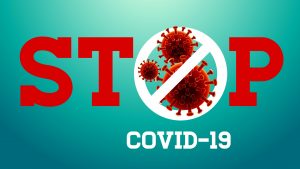
By Brian J. Grim, Ph.D.
This is part of an ongoing blog by RFBF President Brian Grim highlighting positive business responses to the pandemic, and part of the COVIDxNOW Global Economic Leaders Consortium, which is seeking to deliver innovative solutions for COVID19
The picture above shows Pope Francis on Palm Sunday in 2020 versus 2014. The advent of Covid-19 makes the image of crowds pressing upon the pope almost unimaginable. In-person assemblies throughout the world of Christians, Jews and Muslims as they head into Holy Week, Passover and Ramadan are being curtailed – sometimes by law and at other times through and abundance of caution.
Here in the Washington DC area, Sarah Pulliam Bailey and Ruth Eglash writing in the Washington Post note that three faith leaders, who normally lead worship within walking distance from each other in Northwest Washington, are all scrambling to find socially distant ways to celebrate major religious holidays this month. They are joined by clergy and the faithful around the world, including at well-known Christian, Jewish and Muslim sites in Jerusalem and beyond.
As I mentioned in a previous post, this disconnectedness has additional health risks and impacts on people, especially on those with substance abuse disorders.
To help all connect virtually, see Sue Warnke’s recent post, which links to various online resources from a variety of faith communities.
As we seek to support each other during this time, many, including the Religious Freedom & Business Foundation, are hosting online Zoom meetings. It is important also to point out that, as a recent article in the Wall Street Journal discussed, Why Zoom Meetings Can Exhaust Us. Simply, having so much direct face-time and eye contact with so many people can be overwhelming emotionally. adding additional strain even while they provide support.
Finally, the WSJ points out that Zoombombing Harms the Alcoholics Anonymous Community. Zoom has recently upgraded security and settings recommendations. See here for the actions they have taken.


